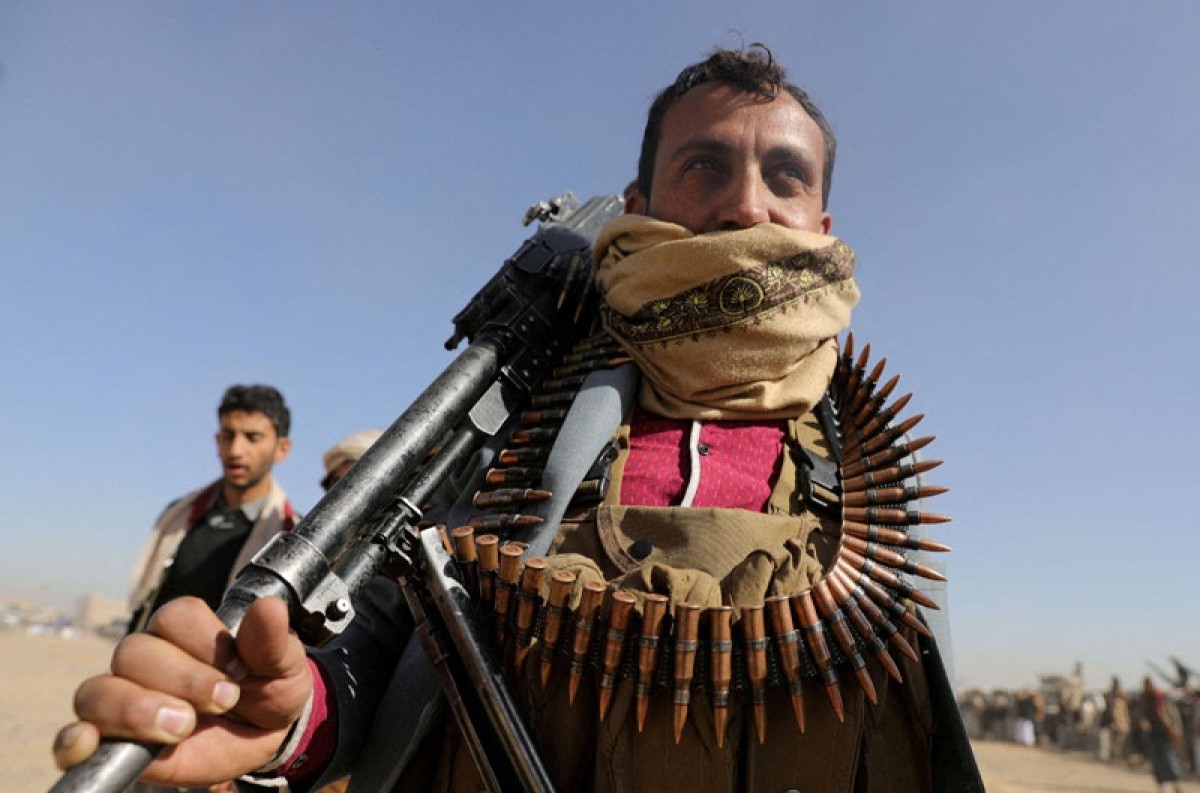Houthi reserve bench: The Iranian tongue does not miss the opportunity to remind of what remains of the unity of the arenas


The leader of the Iran-aligned Yemeni Houthi group, Abdul-Malik al-Houthi, said Thursday that the group will monitor developments in the remaining days before the implementation of the ceasefire agreement between Israel and Hamas aimed at ending the 15-month-old war in Gaza, and will continue its attacks if Israeli strikes continue.
Despite the defeat that befell Hezbollah and Hamas, and the retreat of the Iraqi militias, the Houthis, who have become a reserve for Iran's agenda in the region, did not miss the opportunity to remind of what remained of the unity of the arenas, as if they were speaking for Iran to suggest that the harsh Israeli strikes had not succeeded. In ending the slogan “Unity of the Squares”.
The Houthi positions came the day after the announcement of a ceasefire in Gaza that stipulated the release of 33 hostages held in the Strip in exchange for the release of a thousand Palestinian detainees from Israeli prisons, and the entry of more humanitarian aid into the Strip.
Stopping the war in Gaza does not mean that Israel or the United States will stop the war against the Houthis and allow the group to continue to threaten the security of navigation in the Red Sea
It is clear that the Houthis have come to believe that the agreement between Israel and Hamas will stop the war completely, and that they emerged victorious after remaining the last to raise the slogan of “unity of the arenas.” But observers believe that stopping the war in Gaza does not mean that Israel or the United States will stop the war against the Houthis and allow the group to continue to threaten the security of navigation in the Red Sea.
Al-Houthi said in a speech broadcast on television, “We will continue to monitor developments in Palestine during the three days preceding the entry into the Gaza Agreement. If the Israeli massacres continue, we will continue our operations.”
Al-Houthi added, “Our operations had a significant impact on the enemy on a large scale.” He continued, "At any stage in which the aggression retreats from the agreement, we will be ready for military support for our Palestinian brothers."
Observers believe that the Houthi group could resort to complete calm and stop targeting ships or directing threats to their owners in order to pull the rug from under the feet of the Israelis and Americans and push them to stop bombing in turn.
Mohamed Abdel Salam, the official spokesman for the Houthi group in Yemen, said on Wednesday evening that there will be no real peace in the Middle East region except with the “demise” of Israel.
Abdul Salam added in a statement, following the announcement of the ceasefire agreement between Israel and Hamas, “We in Yemen thank God that He has enabled our people and their armed forces (affiliated with the group) to carry this responsibility by supporting Gaza with weekly million-man demonstrations and effective and effective military operations from the beginning of the flood ( Operation Al-Aqsa Flood) until the declaration of a ceasefire in Gaza.”
Almost every week since November 2023, the Houthis have targeted ships with ballistic missiles and drones in the waters near the shores of Yemen as part of what they say is solidarity with the Palestinians.
These attacks disrupted international trade and forced some ships to take a longer route around southern Africa instead of crossing the Suez Canal, which led to higher insurance rates, the costs of delivering shipments and the time taken, and raised fears of a new wave of global inflation.
p>The Houthis, who control large areas of Yemen, including the capital, Sanaa, sank two ships, seized another, and killed at least four sailors.
In the face of the Houthi attacks, Israel bombed several rebel targets inside Yemen, especially in Sanaa, and threatened to “pursue” their leaders.
The United States has also carried out strikes in Yemen, sometimes with British assistance, saying it is defending freedom of navigation in the Red Sea and Gulf of Aden, a maritime area vital to global trade.